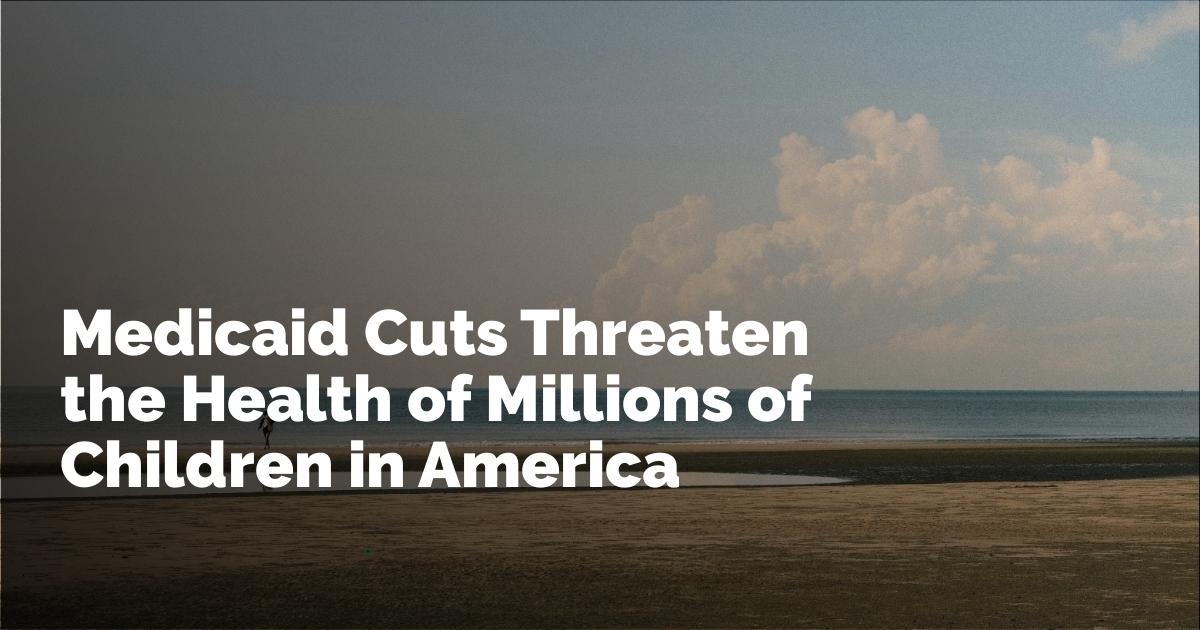Medicaid Cuts and Their Impact on American Children
The topic of Medicaid cuts has become a contentious issue in the U.S. political arena. One aspect of these proposed cuts that demands urgent attention is their potential impact on the nation's youth. This discussion explores how the elimination of funds from the Medicaid program could disrupt the lives of nearly half of America's children, affecting their access to essential health care services.
Understanding Medicaid's Role in Children's Health
Medicaid is a public insurance program that has long served as a lifeline for millions of low-income families across the United States. It provides basic health services to a wide demographic, ensuring that children, in particular, have access to necessary medical care. With approximately 37 million children relying on Medicaid for their health coverage, the role of the program in ensuring the well-being of the younger population cannot be overstated.
The Rationale Behind Proposed Medicaid Cuts
Proponents of the proposed Medicaid reductions argue that these cuts are meant to preserve resources for those who are most in need. By implementing work requirements and other eligibility checks, supporters claim that the program will eliminate inefficiencies and ensure that only deserving recipients receive benefits. According to advocates of this position, these adjustments would address the program’s budgetary constraints while bolstering its sustainability.
The Issue with Work Requirements
One of the central components of the proposed Medicaid revisions is the introduction of work requirements. While the idea is purportedly to minimize inefficiencies, such measures often fail to account for the complexities of poverty and access to work opportunities. Parents or guardians of children eligible for Medicaid may face barriers to employment, such as unstable job markets or lack of childcare. The imposition of work requirements could therefore result in unintended consequences, stripping coverage from families who depend on Medicaid to ensure their children’s health needs are met.
Potential Health Consequences for Children
The repercussions of Medicaid cuts would be profoundly felt by children whose health care access becomes restricted. From regular check-ups and immunizations to treatment for chronic conditions, Medicaid provides vital services that sustain the health of growing children. Without these provisions, conditions that are preventable or easily manageable could escalate, leading to worsened health outcomes.
Deeper Implications for Public Health
This interruption in health care availability could extend beyond individual cases to broader public health implications. Decreasing coverage could lead to higher rates of unmet medical needs, which in turn can result in spikes in communicable diseases, nutritional deficiencies, and other health crises. Inadequate health care access during childhood not only jeopardizes immediate well-being but also sets the stage for long-term health challenges, including increased morbidity and mortality in adulthood.
Economic Impacts of Medicaid Cuts
Economic consequences are also a significant consideration in this debate. Healthy children are more likely to perform better academically, leading to greater opportunities and productivity in adulthood. By contrast, lack of access to health care can propagate cycles of poverty. Children who do not receive adequate health care are at a disadvantage, potentially requiring more intensive (and costly) interventions later in life, thus placing an additional burden on the health care system.
The Societal Duty to Protect Vulnerable Youth
At its core, the debate surrounding Medicaid cuts is about society’s commitment to its youngest and most vulnerable members. Policymakers and community leaders must weigh the immediate financial benefits alleged by Medicaid cuts against the far-reaching and possibly detrimental impacts on children's health and the nation’s future. Advocates for maintaining robust Medicaid funding argue that investments in children's health ultimately contribute to stronger, healthier communities.
Conclusion: Weighing the Costs and Benefits
Cuts to Medicaid could have severe consequences for nearly half of America's children. The stated intention of protecting those most in need does not align with the potential fallout of these cuts, which threatens to disrupt access to critical health care services for millions. While there is legitimate discourse on improving program efficiency, it is essential to approach changes with caution and a clear understanding of the broader implications. Ensuring that Medicaid continues to serve as a protective health safety net for children is crucial not only for their individual futures but for the nation as a whole.
출처 : Original Source

